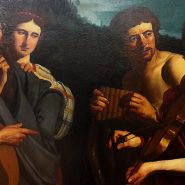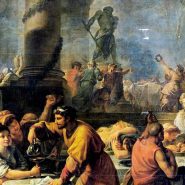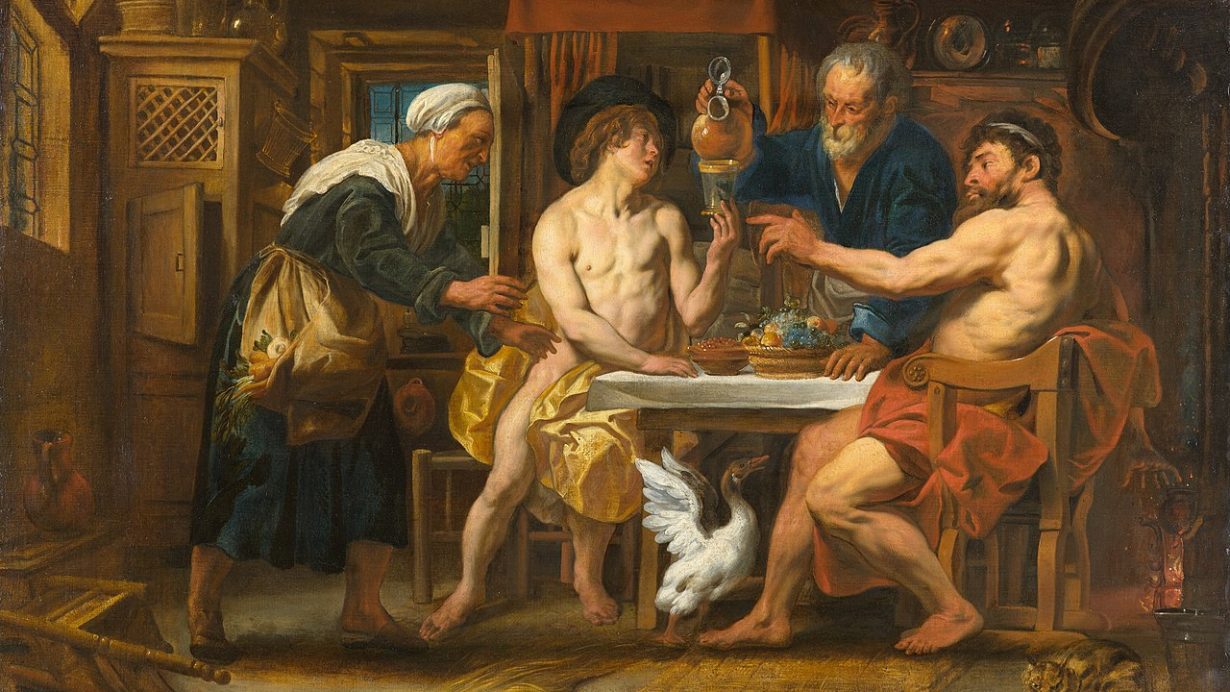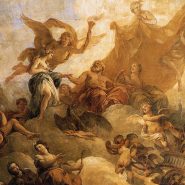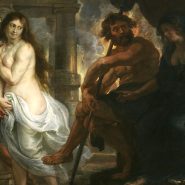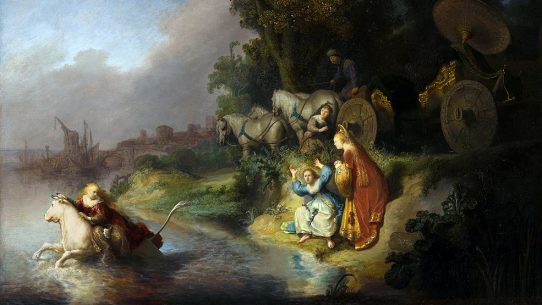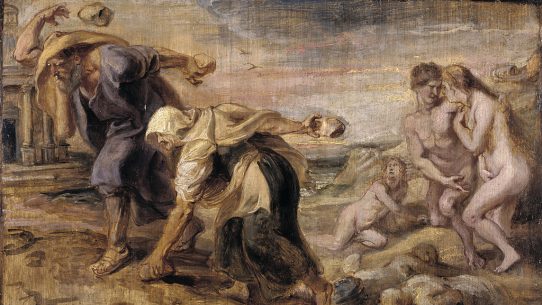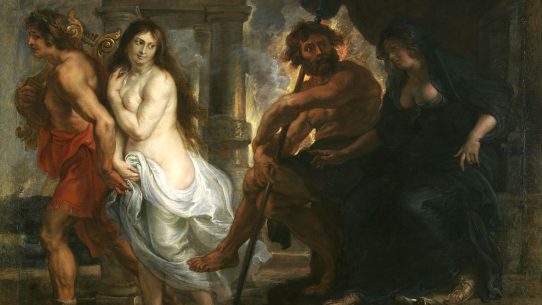Baucis and Philemon is one of Rome’s most tender myths, a story where divine judgment meets human kindness.
Set in a simple village far from palaces and temples, it tells how two elderly peasants offer warmth to strangers who are, in truth, gods in disguise. In their humble home, the divine finds hospitality, and from that generosity flows mercy instead of ruin.
The tale stands as a gentle parable of virtue, humility, and love — values that Rome regarded as the quiet foundation of civilization itself.
Characters and Setting
The myth unfolds in a rustic region often placed in Phrygia, where the gods Jupiter and Mercury walk the earth disguised as weary travelers.
Seeking food and rest, they knock on doors from one end of the town to the other. The houses are large, the tables abundant, yet no one opens. The people have grown proud and suspicious, scorning the sacred duty owed to guests and wanderers.
Only one hut remains — small, smoke-stained, and roofed with straw — belonging to an old married pair named Baucis and Philemon.
The Welcome
Baucis and Philemon, though poor in goods, are rich in spirit. They welcome the strangers without hesitation, apologizing for the simplicity of their table. The hearth burns low, yet their hands are quick and eager. Baucis mixes herbs and sets out olives, eggs, and honey. Philemon cuts a bit of bacon, pours wine, and fetches what comfort the house can spare.
The gods, seated at the rough table, see not poverty but reverence. As the meal continues, Baucis notices that the wine jug never empties. Realizing that their guests are divine, she and Philemon tremble and beg forgiveness for their modest offering.
Revelation and Reward
Jupiter reassures them with a smile. He tells them that their kindness has spared them from a punishment soon to fall on the town. Leading them to a nearby hill, he instructs them not to look back until he commands it.
When they finally turn, they see the valley below submerged in a dark flood. The houses that refused hospitality lie beneath the waters, while their own hut stands alone, transformed into a marble temple with a golden roof and columns bright as dawn.
The Divine Exchange
Jupiter offers to grant the old couple whatever they desire. They ask for no riches or youth, only to serve as keepers of the temple and to die together at the same moment, so neither must live without the other. Their request is granted, for it pleases the gods more than the lavish prayers of kings.
From that day forward, Baucis and Philemon guard the sacred place with quiet devotion. They sweep its steps, tend its altar, and share its story with travelers, reminding them that the gods still walk among mortals and that kindness is the truest form of piety.
Transformation and Peace
Many years pass. Age turns their hands to parchment and their hair to frost, yet their love remains green as spring. One evening, as they stand before the temple, they speak of the promise that had bound their hearts. Slowly, bark creeps up their legs, and leaves sprout from their arms. They do not cry out in fear, for they know the change is divine. As branches enfold them, Baucis and Philemon bid farewell to each other and to the world they served. In a moment of stillness, they become two trees — an oak and a linden — whose intertwined roots and branches speak of love’s endurance beyond death.
Symbolism and Interpretation
The story of Baucis and Philemon is a hymn to hospitality. The open door becomes a symbol of moral vision: those who recognize dignity in strangers perceive the divine in all people. Their poverty, far from shameful, reveals that virtue requires neither wealth nor status. The unending wine signifies grace that multiplies through generosity, while the flood represents the cleansing of arrogance.
Their final transformation expresses harmony between nature and spirit — a sacred ecology in which love and duty root deeply in the same soil. In Roman thought, this myth reminded citizens that piety was not only temple worship but the daily care of others and of home.
Cultural Legacy
Ovid’s Metamorphoses preserved the tale for later ages, and from it poets and painters drew inspiration. Artists of the Renaissance and beyond saw in Baucis and Philemon an image of perfect companionship. Philosophers admired their humility as a civic virtue; theologians regarded them as symbols of divine mercy answering human faithfulness.
In Roman households, small shrines to the Lares and Penates reflected this same reverence for the domestic hearth — the place where the human and divine share one table. Through centuries, their story endured as Rome’s quiet reminder that love and reverence, when joined, can turn even the poorest home into a temple.
Gods involved: Jupiter, Mercury
Based on classical sources in the public domain, including Ovid’s Metamorphoses and translations available via Project Gutenberg and Wikisource.
